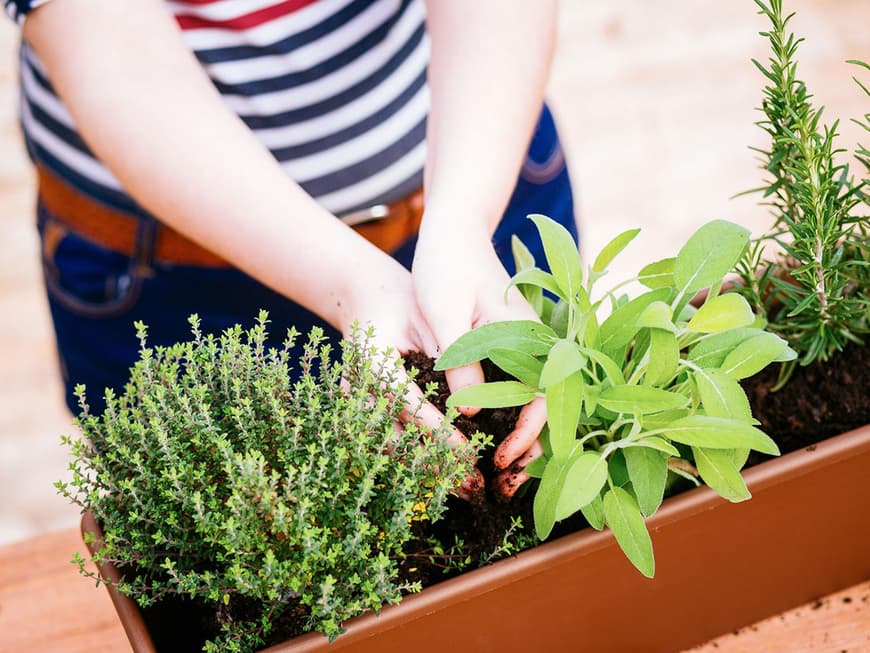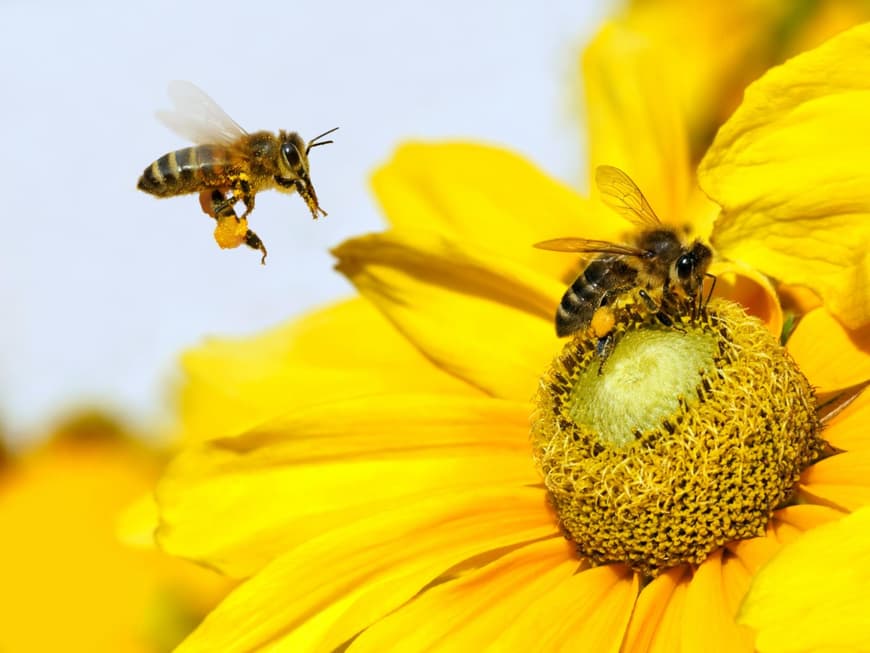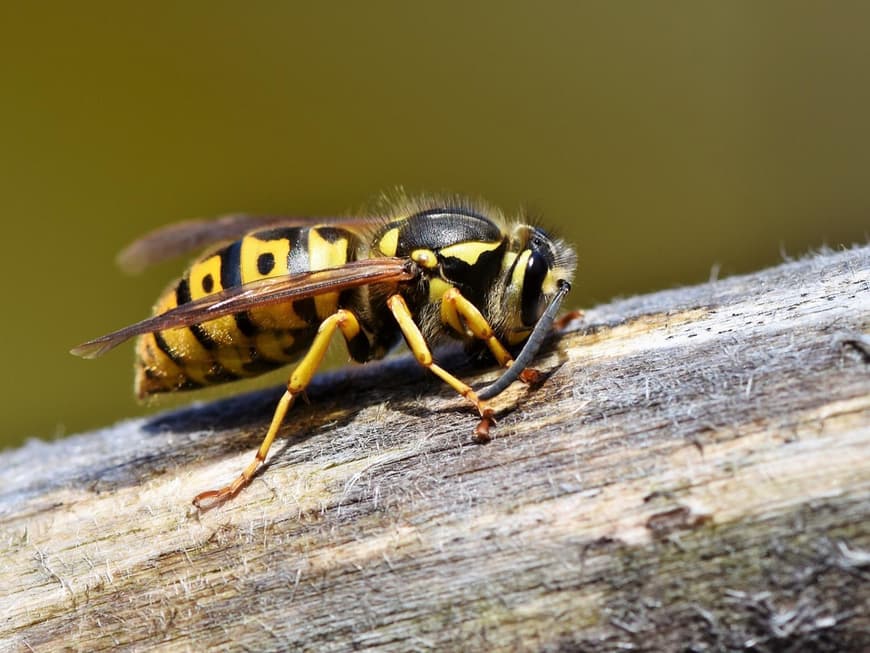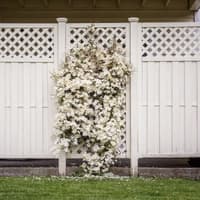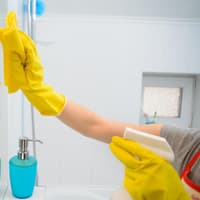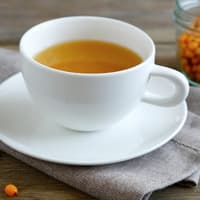This article contains, among other things, product recommendations. We are not influenced by third parties when selecting products. For purchases made via our affiliate links, we receive a commission from the relevant service provider/online shop, which helps us to continue offering independent journalism.
Plants against wasps: Which ones really help
Wasps are real pests in summer. In addition to the usual products from the drugstore, plants can also be used against wasps. You should have these in your garden or on your balcony!
The best plants against wasps for the garden and balcony
In addition to store-bought insect repellents and well-known household remedies, plants also help against wasps and even hornets and mosquitoes. Plants can even keep pests away. And the good thing is: they also smell good. The flowers are a blessing, at least for our olfactory system. Wasps, on the other hand, tend to be bothered by the smell of the plants and, in the best case scenario, leave.
- Lavender against wasps: The insects can't stand the scent of lavender. In terms of their effect, they are just the right thing to drive them away. Either plant your garden or balcony with the pretty purple plants that bees love, for example. Or add a few drops of lavender oil to a bowl of water. The reason for this is the essential oils it contains - these are particularly concentrated in true lavender (Lavandula angustifolia) and large spikenard (Lavandula latifolia). Here you can find lavender plants in a set of 5 >>
- Plants against wasps - geraniums: Just as wasps dislike lavender, they also dislike geraniums, also known as pelargoniums. Due to the intense scent of their flowers, geraniums are typical outdoor plants that are relatively easy to care for. They come in a variety of colors, from pink to red. Simply plant them in a flower pot or tub - and you're done. You can order the bicolored geranium "American White Splash" directly for planting here>>
- Marigold: It has an unpleasant effect on all flying insects. Therefore, make sure that beneficial insects are given alternatives and that the plant is only effective against uninvited guests. Otherwise, like lavender and herbs, marigold is ideal for repelling wasps in the garden. Here you can buy a marigold mixture as seeds >>
- Herbs and spices against wasps: Like lavender, basil, mint, thyme, lemon geranium, lemon balm, lemongrass (citronella oil) or rosemary and cloves also contain essential oils. Wasps do not like the scent and usually leave. However, rosemary also drives away important insects such as bees, which is why the herb should not be planted directly next to flowers. It is best to choose a separate corner for herbs. To repel wasps, place pots on the windowsill to keep the uninvited visitors out and install mosquito nets on many windows. If you don't have or don't want to have fresh herbs at home, you can always use pure essential oils such as lavender oil. Used in vapor lamps, you can achieve very good results. Of course, plants and herbs don't just help indoors: spices in particular can be spread around the house to repel insects or prevent them from entering in the first place.
- Garlic and ginger: Garlic in combination with lemon tastes good in Mediterranean dishes. Wasps don't like the smell that we emit afterwards. For ginger, cut a fresh ginger bulb into slices and lay them out on the patio, balcony or in a bowl.
- Wrong - set fire to coffee powder - this old household remedy is only intended to annoy wasps, but is not really suitable as a wasp repellent.
Some hobby gardeners may have already considered buying a carnivorous plant to repel wasps. However, these are of little help as the plants can only catch one insect at a time and often need several days to digest it. These plants are also questionable as protection against wasps.
Home remedies against wasps >>>
Home remedies: Plants against mosquito and wasp bites
- Aloe vera: This thick-fleshed plant can be found in more and more homes. After a mosquito bite, simply cut off a leaf and rub it on the mosquito bite. The plant can also have a calming effect after a wasp sting. Aloe vera is also said to have anti-inflammatory properties. It is best to cut off a fresh leaf and wash it. Then score the leaf with a knife, squeeze the gel out of the leaf and rub it onto the affected area.
- Marigold: The plant not only keeps mosquitoes away from the garden with its scent. It also helps with mosquito or wasp bites in the form of marigold ointment.
- Daisy: It's a little awkward, but the plant helps against mosquito and wasp bites: collect it, squeeze it out and drizzle the juice onto the area.
- Parsley: You often have this herb at home - chop it up and place it on the sting. The essential oils soothe the itching.
- Ribwort plantain: It is similar with this plant - rub the leaves between your hands and apply the juice to the sting.
- Onions: The bulb is the top choice for mosquito and wasp bites, as the sulphur has an antibacterial and decongestant effect. The good thing is that you almost always have onions in the house. Simply cut them in half and rub them into the stings.
Extra tip: To prevent insect bites, you can make your own skin protection from the herbs mentioned above, such as basil and lemongrass, as well as oil. Simply flavor normal oil well (e.g. add whole stems to the oil) and then rub the mixture into exposed areas such as arms or legs. Try a small area first, as the skin can react allergically to essential oils.
Plants against wasps: Further tips against wasps in the garden
Fallen fruit should be cleared away quickly, otherwise it will attract annoying pests. If you want to eat outside, make sure you put the food on the table just before eating it and clear up the leftovers quickly afterwards. It is also important to clear away any rotten wood that is still in the garden in good time in spring. This is because wasps start building their nests in April and need wood to do so.
Do you have a wasp nest?
Even plants will have a hard time against a whole army of wasps. Even if most wasp species are harmless to humans, they can be frightening in large numbers. And where children play, you have to be particularly careful anyway. In any case, you should not do it yourself, but have the wasp nest removed by experts. Something like this belongs in professional hands!

